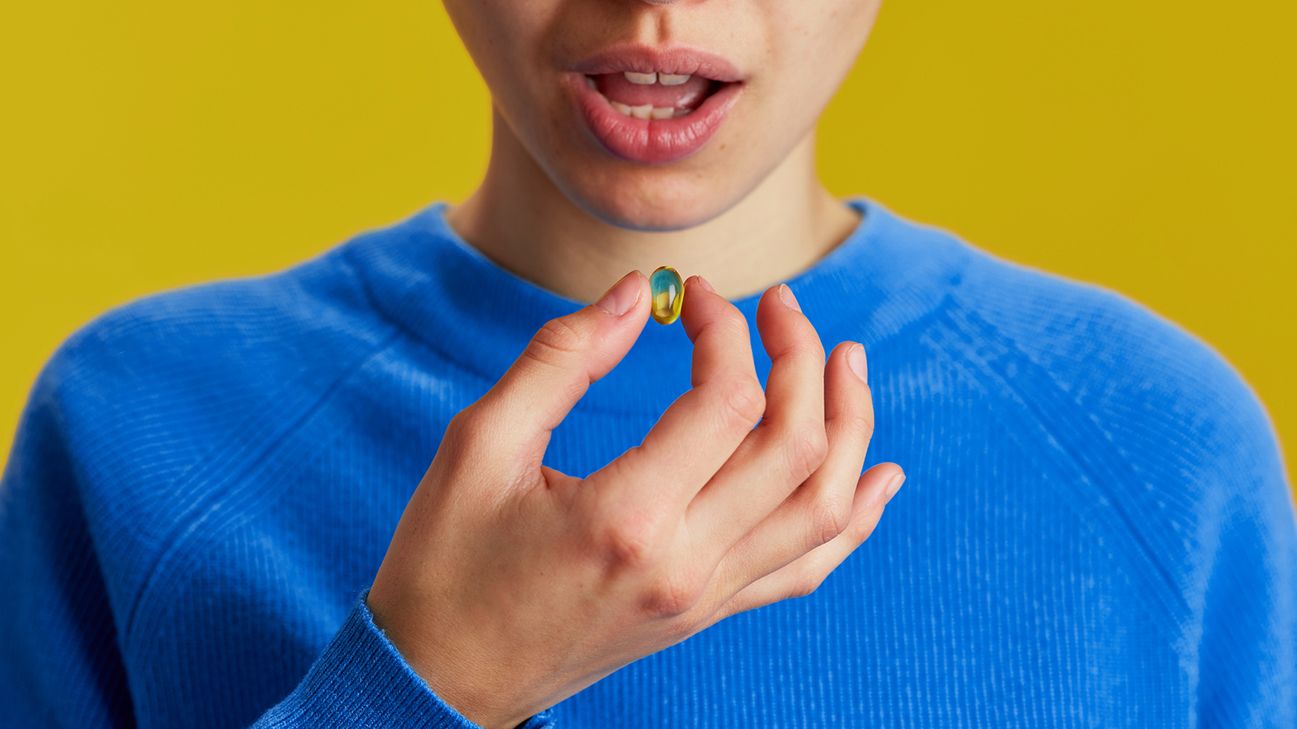Some peeps think too much vitamin B12 can cause headaches. But IRL, there’s no evidence to back that up. The more likely cause of your head pain is that you’re not getting enough of this vital nutrient.
Here are the deets on deficiency plus some delish B12-rich foods to add to your diet.

B12 can cause headaches. Or rather, a lack of B12 can cause headaches.
Vitamin B12 deficiency has been linked to neurological symptoms like head pain. According to a 2020 study, headaches were the most common symptom of vitamin B12 deficiency in adolescence. Other research shows that vitamin B12 might help treat chronic migraine.
In a 2019 study of 140 people, researchers found that the participants who had migraine also had low blood levels of B12. Meanwhile, the folks who had the highest B12 levels were 80 percent less likely to get migraine compared to those who had lower levels.
Just keep in mind, we need more research to prove the exact link between B12 and headaches or migraine. But since B12 is important for your overall health, you should prob up your intake anyway. (Unless you already have your levels on fleek, in which case kudos!)
Okay, so B12 prob won’t cause headaches if you’re getting the right dose. But does it have any other shady little tricks up its sleeve? Well, getting B12 from food is generally considered super safe. However, taking B12 as a shot is known to cause:
PSA: Talk with a healthcare professional if you have any of these symptoms. You should also let them know before you make any major changes to your supplement regime.
Here’s how much vitamin B12 should get on the daily, according to the National Institutes of Health (NIH).
| Age | Recommended Dietary Allowances (RDA) |
| 0–6 months | 0.4 micrograms (mcg) |
| 7–12 months | 0.5 mcg |
| 1–3 years | 0.9 mcg |
| 4–8 years | 1.2 mcg |
| 9–13 years | 1.8 mcg |
| 14 and over | 2.4 mcg |
| Pregnant people | 2.6 mcg |
| Breastfeeding or chestfeeding people | 2.8 mcg |
The best way to get vitamin B12 is through your diet. Here’s a quick list of foods to help you hit your daily B12 quota:
- tuna
- eggs
- trout
- clams
- salmon
- sardines
- cow’s milk
- lamb liver
- beef steak
- beef kidneys
- dairy products
- fortified cereals
- fortified nutritional yeast
- fortified plant milks like oat or almond
If your headaches are caused by a deficiency, eating more B12 might make your symptoms go away. You can also take a vitamin B12 supplement, but make sure you stick to the good stuff. Opt for a high quality brand that doesn’t contain lots of yucky additives.
If you’re getting enough B12 — but still get headaches — something else might be to blame. Talk with a healthcare professional if you have chronic headaches or migraine. They can run a simple blood test to verify if a vitamin B12 deficiency is to blame.
You might be able to treat headaches or migraine in the short term with an over-the-counter (OTC) pain reliever. If these don’t cut it, your doc might suggest something stronger.
Some peeps also get relief from alternative treatments such as:
- stress-relieving activities like yoga, journaling, walking, or spending time in nature
- behavioral therapy
- acupuncture
- massage therapy
Vitamin B12 deficiency can cause headaches. There’s also a chance it plays a part in migraine symptoms. You can reduce your risk by getting enough vitamin B12 from your diet. You can also add a B12 supplement to your regimen or ask your healthcare professional about B12 shots. Just be sure you stick to quality supplement brands that don’t contain weird fillers.
Your doctor can run a simple blood test to verify a deficiency is to blame. If not, they can help you figure out what’s going on. In the meantime, you can try an OTC pain reliever for short-term relief. Some folks also dig alternative and complementary therapies like yoga, behavioral therapy, acupuncture, or massage therapy.

